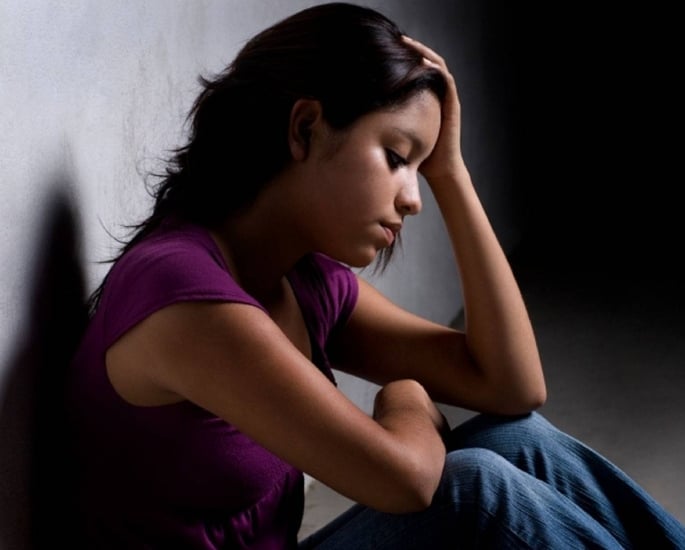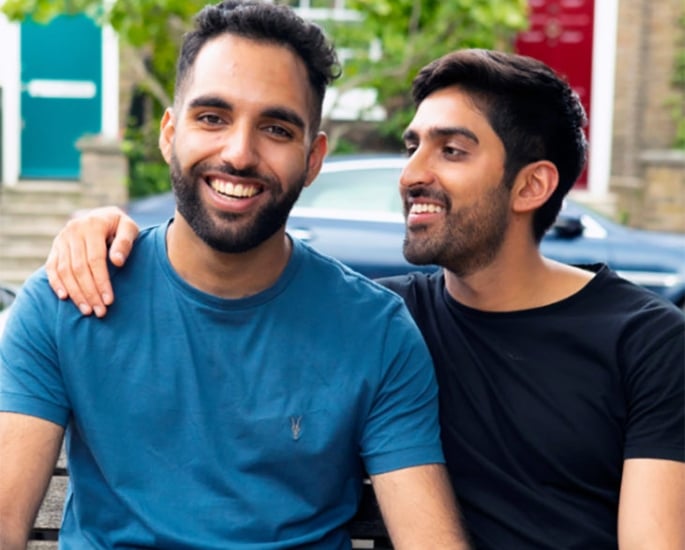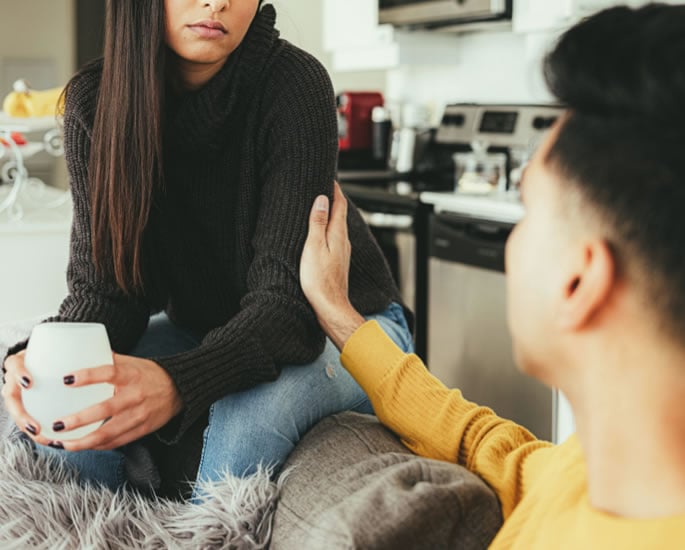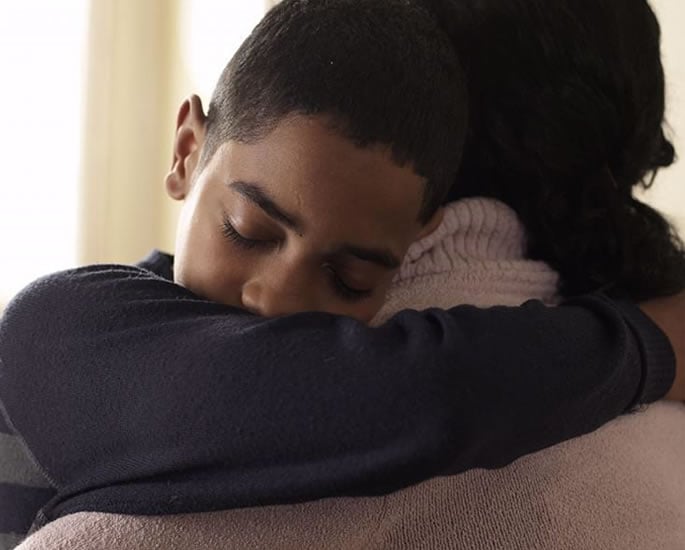How to Come out as Gay to your Desi Parents
Although there is a wider acceptance of the LGBTQ community in the British Asian diaspora, individuals still find it difficult to come out as gay.
Some aunties, uncles and Desi parents still believe that the sexual spectrum is confined to a man and a woman.
Additionally, there is a longstanding viewpoint in some households that being gay is a bad thing, almost labeling it as defiance.
Therefore, those from the LGBTQ community face tough challenges in trying to explore their identity, battle with cultural ideas and express who they truly are.
As a result, many British Asians find it extremely hard to talk to their parents about this topic due to all the stigmas attached to it.
In turn, this forces many British Asians to hide their sexuality and never come out as gay. Likewise, there aren’t many people they can turn to for advice – until now.
DESIblitz spoke to some gay British Asians who share their advice and experiences of coming out to their parents/family.
They highlight some key areas to focus on in the hopes that it will guide closeted people to feel more confident about accepting who they are and therefore come out in the most comfortable way possible.
Explain the Whole Story


When trying to explore sexuality, there are going to be a lot of questions, difficulties and experiences that gay people have to go through.
Along with this journey comes a whole heap of emotions that are sometimes too hard to bear. But, feeling this way is not abnormal and it’s this struggle that helps mould the story to tell your parents.
When coming out, it’s not easy as just saying “I’m gay”. Desi parents especially need to know and understand all the elements of one’s journey to coming out.
Selena Hyat*, a 23-year-old sales advisor from Coventry came out to her parents in 2020. She explains why it’s so important to tell the whole story:
“People get caught up about the gay aspect, that they rarely explain the thoughts and feelings they’ve felt up until that point.
“Coming out is not just a statement – it’s a realisation, a story, a journey.
“When I came out to my parents, they were shocked. But, as much as things were hard to understand, I took it upon myself to explain my life from the first moment I questioned my sexuality.
“I wanted my mum and dad to know how hard it was for me to live my life normally.
“In the end, they had more empathy for me and didn’t take the typical Asian approach of brushing it under the carpet.
“So, for all those who are closeted, when you do come out, you have the responsibility to tell your story.”
39-year-old Bobby Tagore from Kidderminster adds his experiences in relation to this:
“I came out when I was 30 and as you expected, I kind of got outcasted by my family. I mean we were doing things normally, but there was always tension in the air.
“A few years later, I grew tired of treading on eggshells. I was also angry that they didn’t know about my experiences and emotions.
“All the pain, confusion, bullying, and exploration take a toll on the LGBTQ community.”
“So, I explained to all of my family what I went through trying to find myself.
“I said how scared I was of telling them who I really was, how disappointed I felt I made them, how hard it was trying to live my life normally.
“I also said I was on the brink of suicide from the bullying I got at school for being camp and a ‘faggot’. All of this came flooding out and for the first time, they realised my story.”
It seems that when a person does decide to come out as gay, they need to reveal the full extent of what they have been through.
Only then will Desi parents recognise what their child has and is going through.
Tell Friends First


Upon speaking to some British Asians, they highlighted another way to help come out as gay is coming out to friends first.
Friends tend to be less judgemental and are more inclined to show compassion and sympathy.
There is a risk that Desi parents can uphold certain stereotypes when their child comes out like being angry, ignoring them, or even punishing them.
However, having this hard conversation with mates is almost like a practice run. It can also a person to gain more confidence when it comes to handling their parents.
Sean Patel*, a 19-year-old student from London spoke to DESIblitz about this:
“I knew I was gay from a young age but always hid it from my mates and family. I was terrified of anyone knowing who I was.
“But as you get older, you realise who your real friends are. So, I decided to tell my best friend first to see their reaction.
“I thought if they judge me then I know their bad friends, but if they still embrace me, then it’ll motivate me to tell my parents.
“And that’s just what happened. A few days after coming out to my close circle, I told my family.
“Surprisingly, the same questions my parents had were the same ones my friends asked. So, I was so much more confident and assertive when speaking.
“I feel like in Asian families, you have to come across like that with this type of news.
“Also, if they take it badly, then at least you have your friends to fall back on. So, I’d urge closeted Asians to take this approach.”
In contrast, 27-year-old Arun Verma states that this approach should be carefully considered:
“Nothing can really prepare you for what will happen when you come out as gay. People will react in different ways.
“I told my friends first and they were thrilled and happy for me that I felt confident enough to tell them.
“Although I was happy, it didn’t really prepare me for my parents. My friends didn’t question me so I kind of expected my parents to react in a similar fashion, but it was the opposite.
“All my friends are Asian so I would have thought they’d ask me some ignorant stuff about it.”
“When my parents actually did that, I didn’t have any answers for them, I sat in silence. I wasn’t prepared at all.
“As Asians, we need as much preparation as possible because we just know there’s a high risk of this revelation being taken negatively.
“All I would say is try to reach out to more gay Asian people or organisations.
“Friends are always good to rely on for support. But, when it comes to something like this, we need all the useful tips we can get.”
So, it seems telling friends first about being gay can be useful but should also be carefully thought about.
Ultimately, it comes down to the individual and how comfortable they feel.
If they think telling their mates first will be helpful, then that’s fine but if they feel an organisation would be beneficial, then that’s also an avenue. There is no right or wrong decision.
Be Patient


Perhaps an obvious trait to have when thinking of coming out is to be patient.
As mentioned before, some British and South Asian families have been brought up with outdated narratives around sexuality.
Some households still reject the idea that the spectrum of sexuality is beyond just a man and a woman. Whilst others accept the idea but struggle to come to terms with it being one of their own children.
For the latter, a lack of understanding takes a pivotal role in how South Asian parents view LGTBQ.
There are no open discussions in the community, although this could change with the role Gen Z will play in the future on inclusivity.
So, it’s important to stay patient when coming out as expressed by Sara Hamed*, a 38-year-old chef from Cornwall:
“As a brown gay woman with parents from Pakistan, I found it hard to accept who I was and thought society would be the same.
“Things got better in terms of racism but the sexuality stuff was and still is taboo. It was only in 2018, when I was 34, that I decided to come out to my parents.
“Four years on, and they’re still trying to accept what and who I am. They had a big argument with me when I told them because their idea of marriage and kids was blown up in the air.
“Even though I said there are ways around this, they didn’t see it as straightforward as that and had to complicate things. But, I’ve been patient with them – that’s the key.
“We cannot expect our elders to suddenly drop the ideas and feelings they’ve been brought up with and lived around for years and years.
“So, as Asian gays or queers, we have a responsibility to be truthful but also be mindful that this will take time.”
“We can’t be angry that parents don’t get it straight away, because neither did we when we first had these desires, feelings and thoughts.
“But, I hope that the next generation won’t have the same struggles to fight.”
In Sara’s evoking words, being patient is the key and overwhelming factor when trying to come out as gay.
It seems it’s important to know that this kind of news is huge in the South Asian diaspora and progress can only be made with time and effort.
Don’t Think About the Culture


Perhaps the most overwhelming advice DESIblitz got from individuals about coming out is not to dwell on cultural expectations.
There are a lot of typical responses people get from revealing their sexuality like “what will the family think”, “what about kids?” or “are you sure?”.
A lot of younger British Asians especially are brought up with the ideas of their parents, many of whom migrated from India in the 60s and 70s.
But, they are also being raised in an environment much more open to sexuality and sexual preferences.
Therefore, it’s harder for them to balance their cultures and explore both in a peaceful way. Many people don’t want to disappoint their parents but they also don’t want to hide who they are.
But, it’s this worry that should be the last thing on someone’s mind according to Preet Chabra, a 30-year-old mechanic from Eastleigh:
“When I was trying to figure out my sexuality, I was honestly so scared of what would happen.
“I thought something would happen to me. Our culture is so fixated on gay as a bad thing and the things I’d hear growing up would be scary.
“People joking about disowning their children if they were gay or laughing about a rumour of someone being gay in the family.
“These things still happen now by the way but I don’t think it’s as normal as it once was. I worried so much that I wouldn’t eat at times and my family thought I was mentally ill.
“But, I eventually realised that worrying about the culture or what family think is not my issue.
“I can only stay true to myself and that gave me the greatest relief. I’m not going to lie and say coming out was smooth because it was anything but.
“But, I was at much more peace with myself after coming out because I finally accepted what and who I was, no matter if my family or culture didn’t.”
Selina Powar*, a student from Southampton also shares similar thoughts:
“I came out last year (2021) and put it off for a long time because I knew what the reaction would be.
“My dad even said to me ‘what will auntie and uncle say?’. I just laughed and told him I didn’t care.
“They can say what they want, family shouldn’t treat you differently because of your sexuality.”
“But, in Asian families they do. It’s why a lot of girls keep hold of their ‘secret’ as well. Being a lesbian is a massive taboo.
“I’d urge anyone wanting to come out to be selfish and think about themselves. Your parents will always love you, even if they disagree with you being gay.”
Lastly, 30-year-old Sarbjit Singh from Liverpool gave us his thoughts:
“Listen, culture is one thing but accepting yourself and being free is something different and the latter is what you should aim for.
“The culture and those within it (including our parents) can only progress if people like us take a stance and don’t take any bullshit.
“My advice would be to always speak to someone about how you are feeling and reach out to someone who has been through it.
“If not, then confide in your friends or take simple steps to eventually come out.
“Don’t tie yourself up into thinking about other people, even family, because they don’t have a clue about what hardships you’ve had to face.
“So, their judgement is invalid and your life is way more precious than that.”
As previously stated, this overwhelming opinion about the culture is poignant amongst gay British Asians.
This viewpoint does come from a place of anger but also disappointment that the culture does not embrace all the people within it.
But as Sarbjit said, it takes a lot more discussions and openness in order for progress and change to be made.
Coming out as gay can be difficult, as highlighted by the individuals DESIblitz spoke to.
But, whilst their advice is vital, it’s also important to note that there is no wrong or right approach to breaking this news.
What matters the most is that people take their time and come out as gay when they feel it’s right.
If you need support or advice, then reach out to some of the British Asian organisations that can help: